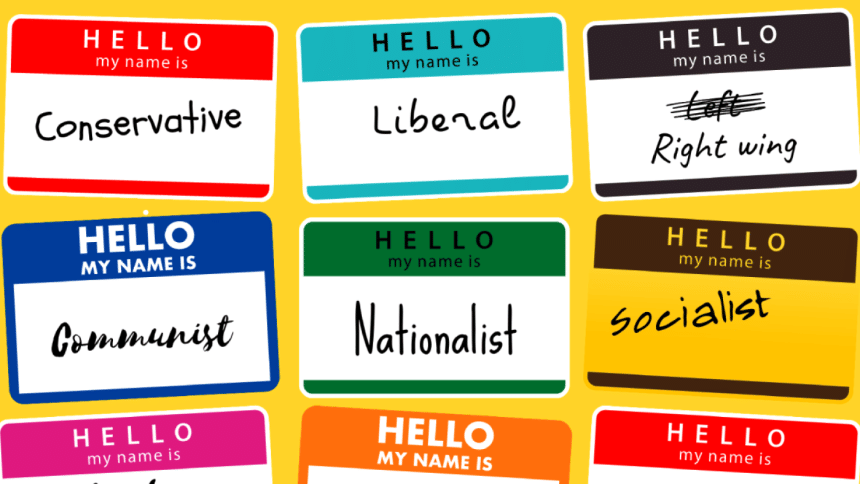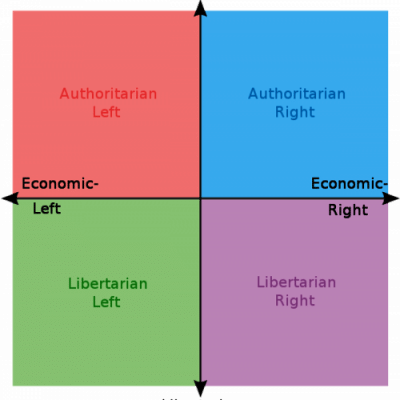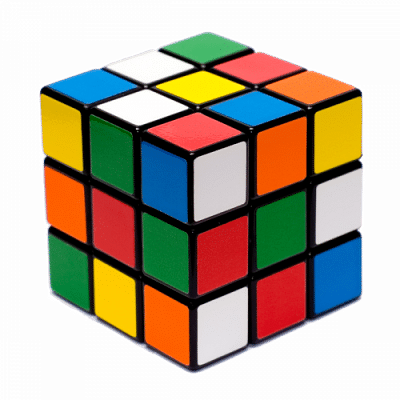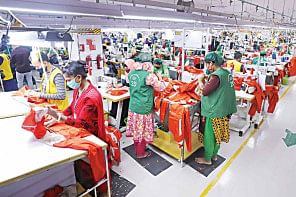Understanding Political Labels

Political labels, much like the concept of politics as a whole, may seem like faraway titles that are out of our immediate reach. As a result, we may not give much thought to the nuances of political labelling that can exist within our own spheres.
These labels exist to bring unification and solidarity. Coalescing under specific titles or labels allows people to work together towards a common goal or have a shared identity. However, the shortcomings of the labels may be ignored, which could potentially become barriers to our goals.
What labels miss
A commonality in the political discourse in many countries is to conflate the left and the liberals by those who might be deemed to be on the right. This example is one that is particularly useful in explaining one of the biggest issues of labels and how labels are often used by groups or influential individuals to mark people for their base to not listen to, because those who follow even a handful of influencers, academics, or personal acquaintances identifying as leftists may see the scathing critique of neoliberalism and other systems and ideas that liberals push and ignore and vice versa.
What might eventually become obvious to anyone who keeps up with political news for a time is that labels can be used to obscure, mislead, and distract. Not only do we begin to form preconceived notions about people based on the labels they use for themselves, we also assume certain behaviours automatically indicate a person has certain political beliefs.
The umbrella effect of a label can often exclude the chance to interact with people who believe in other ideologies. Political discourse is regularly nipped at the bud when the mention of labels comes into play. This is an unfortunately common sight in popular social media platforms with Facebook being a prominent example. A user may want to begin a civilised discourse about political issues, only to be met with ridicule by people from the opposing mindset.
This results in the formation of political echo-chambers. Regardless of political identity, these echo-chambers filled with like-minded individuals become unavoidable once labels are adopted. While it may be fulfilling to engage in discussion with people who have similar mindsets, beliefs, ideologies, etc., it can be detrimental as the sharing of new opinions and perspectives are greatly curbed.
In the daunting face of becoming politically educated, people often turn to more accessible options. More recently, a trend on the internet has been that of a political compass quiz. As is often the case, there are several aspects to it that warrants a closer and more critical look.
The quiz
The quiz does not have the options of "I don't know" or "Neither", thus pushing people to side with a position they may not be aware of or haven't thought of clearly. Not only can this lead to a skewing in results, but this can also show that the intent behind the quiz is more to entertain than educate.

Further lacking include the complete absence of context in the questions which ignores the unique situations of each country and the highly reductive nature of the questions. This forces generalisations to be made on whole populations ("People are ultimately divided more by class than by nationality") that requires knowledge of available data and ability to determine to a reasonable enough extent whether said data one uses to make a judgment is reliable or not.
The framing of certain questions often bypasses many layers and angles for the average person. For example, one question states, "Those who are able to work, and refuse the opportunity, should not expect society's support."
From underemployment to precarious jobs that pay nowhere near a decent amount for labour are just a few of the caveats ignored. Questions like these form opinions that can be dehumanising to others in unfortunate positions who might be just as unaware about the systems exploiting them.
What are the sources of information?
One of the most ironic questions in the quiz happens to state, "There is now a worrying fusion of information and entertainment".
Whether one takes this to mean that this question by itself shows that the makers of the quiz are responsible or that it is a tongue-in-cheek reference to itself, one thing that most might agree on is that this quiz is the very example of the phenomenon the question is describing.

YouTube has become filled with political commentary with people both passionate and dispassionate about politics engaging in discussions about matters that are likely to have a massive impact on the lives of citizens. However, much like in the rest of the internet, especially Facebook, the conversations invariably devolve into arguments and insensible chatter. One might be tempted to turn to traditional media. However, distrust in the traditional has been rising for a while. A Columbia Journalism Review report titled "The Fall, Rise, and Fall of Media Trust" asks, "Has a healthy scepticism become a civically disabling cynicism?" J.J. McCullough, a columnist at The Washington Post, explains in his YouTube channel that the political pundits who go on talk shows and become popular are often those who gain prominence through confidence and consistency, even if their knowledge isn't proportional. Both of these sources also mention the dangers of the 24-hour news cycle that requires the constant churning of content to vie for people's attention.
Schools, as nearly everyone has been saying for decades, are often outdated and unsurprisingly are likely to steer clear of educating students on matters of politics. As one half of this team can confirm from personal experience, knowledge regarding politics from educational institutions can be scant to the point where only in an introductory political science course in university did we learn about terms as basic as "unicameralism" and "bicameralism" and that our country adheres to the former system.
The average young person nowadays is introduced to political ideologies through social media. This is in contrast to the "olden days" when political literacy had to be learned either through discourse or through academia.
As evident in the past decade or so, memes play an alarmingly important role in this context. A quick search of the word "communist" on Facebook yields dozens of results for pages titled with some iteration of certain political labels. The content that they share follows suit, ranging from the generic "if we share something it falls under communism" meme to the somewhat less frequent calls for guillotines.
The increasingly common occurrence of these posts that barely scratch the surface of the ideology have become widely accepted. As a result, the population that is exposed to them adopt these labels and ideologies as their own.
On one hand, this may be considered as a positive as they learn more about political theory, but it can be said that the negative aspects far outweigh the positives. For one, the bite-sized political content doesn't offer much in terms of knowledge. Consequently, that responsibility of becoming educated on the "right" track falls on the shoulders of the generally young and susceptible audience.
In conclusion
The nature of the internet not only enables but rather encourages this sort of behaviour. Expectations of instantaneous responses, greater engagement and sharing of outrageous behaviour, and subsequent dopamine hits from the increased attention no matter how negatively incentivize thoughtless behaviour in individuals who may then double down when confronted with criticism. The issue becomes murkier and more serious with political terms where dictionary definitions and actions of political actors often contradict. A look at campaign slogans of various politicians will make you aware of buzzwords such as "hope", "change", and "revolution" but specifics might be largely absent thus rendering the promises empty.

 For all latest news, follow The Daily Star's Google News channel.
For all latest news, follow The Daily Star's Google News channel. 








Comments